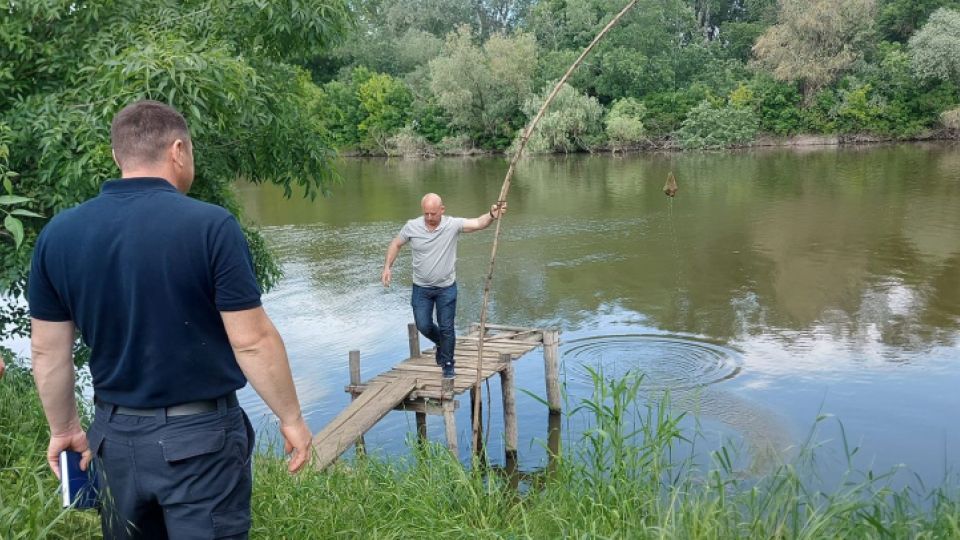A group of dedicated volunteers helps to protect the nature of the recently declared Lower Dniester National Park. They improve their skills through regular training to ensure that their work reaches a professional level. The May training took place in our presence in the village of Tudora, where the Dniester River forms the border with Ukraine.
The major challenge? Poaching
We could feel the proximity to Ukraine. On the morning before the training, gunfire could be heard in the distance, even though Odessa is about 60 km away from Tudova. But we were here to discuss the Moldovan reality. Volunteer rangers were taught what conservation regulations are most often violated in Moldova, how to detect traces of such activity in the open, and how to take adequate action if detected. The model example was poaching, which, unfortunately, is a widespread practice in the country. Its effective combating is also a great challenge for professional rangers from the Environmental Protection Inspectorate. Representatives of the Inspectorate from Chişinău, together with police officers from the district town of Ștefan Vodă and the local border police unit, were the speakers at the course.
The lectures and debates were followed by the practical part when the representatives of the inspectorate and the guards walked along the river bank and destroyed poaching baits, many of them obviously set by local residents, to whom they explained the meaning of their actions on the spot. For the rangers themselves, it is much more difficult to combat poaching by visitors from Transnistria, which lies just a few kilometers further north across the river.
Contacts abroad and across the river
On the spot, training participants agreed to establish an Association of Volunteer Nature Guardians of the Lower Dniester National Park to encourage the recruitment of other interested people and to secure the support of government institutions. The new formal structure will also allow them to benefit from the support offered by similar associations from abroad. For example, from Romania, with which Moldovans share a common language, culture, much of their history and post-communist past.
In the afternoon of the same day, we met in the village of Cioburciu, on the opposite bank of the Dniester, with environmental activists, mainly students from the Green House Association, and representatives of the Iagorlik Nature Reserve and the Inspectorate of Ecological Services of Transnistria. The topic of the meeting was the protected natural areas of Transnistria and their protection, particularly the prevention and combating of poaching, illegal logging and waste management.

Both events were held in cooperation with Biotica in the framework of our joint project supported by the Transition Promotion Programme of the Ministry of Foreign Affairs of the Czech Republic.
Since last year, Arnika and its Moldovan partner organization Biotica have been preparing local volunteer nature guards for their mission through a series of training sessions and exchange of experiences with experts from the Czech Republic.







